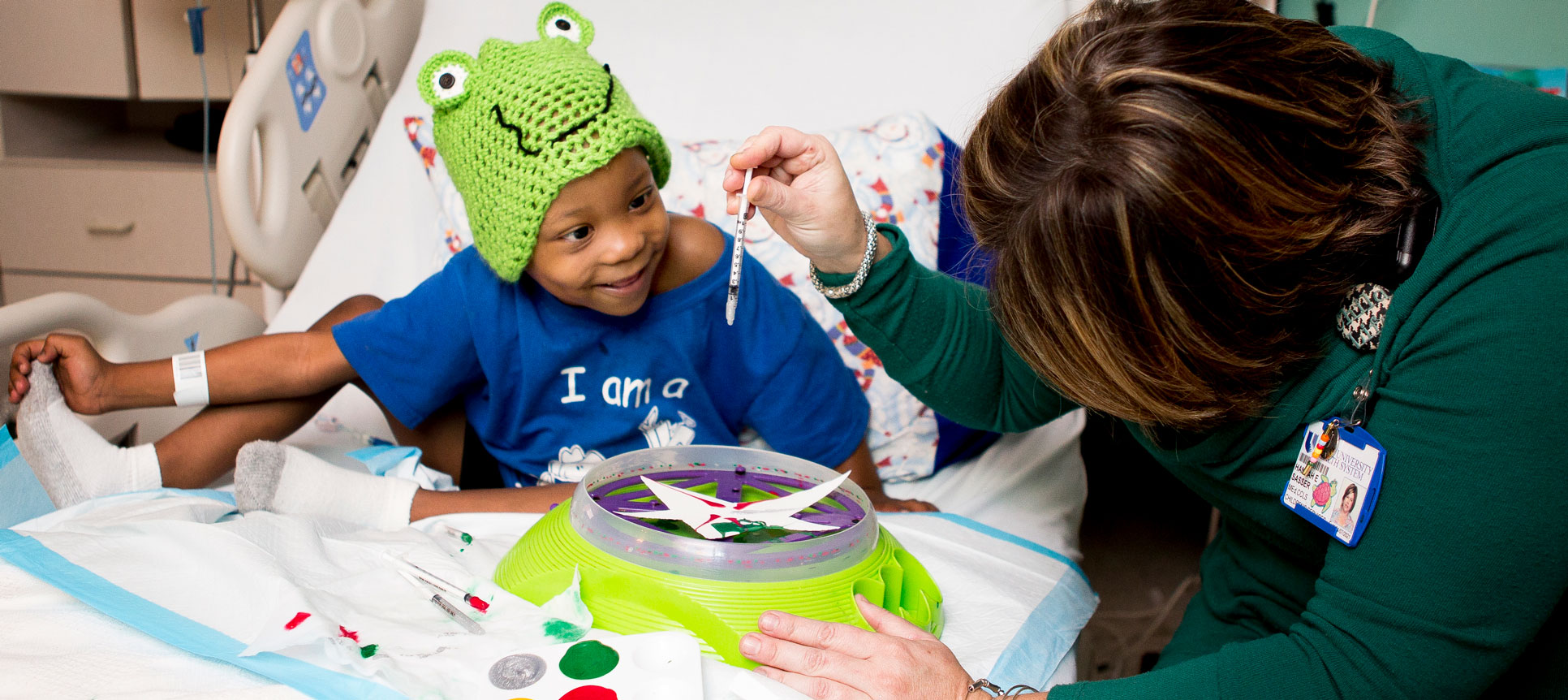Therapeutic Play and Psychosocial Support
Child Life specialists use play that is developmentally age appropriate and supportive to better meet the emotional needs of children. Therapeutic play, including music therapy, can help decrease pain, meet treatment goals, teach positive coping skills for future procedures or tests, and promote mastery of experiences.
Medical Play
This hands-on play experience uses real or imaginary medical equipment and supplies to help children become more comfortable and familiar with health care experiences. Medical play provides the opportunity for children to work through their feelings and fears surrounding health care events, and enables specialists to clarify any misconceptions children may have about their care, treatment, or procedures.
Family Support and Education
Child Life specialists provide emotional support and information to parents related to helping their child or adolescent cope with illness or hospitalization. Specialists identify how a parent may best support their child within the hospital and when they return home. Brothers and sisters can also be affected by a child’s illness or injury. Siblings may need help understanding what is happening and how to work through their own feelings and concerns about a brother or sister who is sick. Child Life specialists work with the entire family to give support, answer questions, and help prepare siblings for visiting the hospital, returning home, or reentering school. If you have concerns regarding your hospitalized child or questions about how to best support siblings during hospital visitation, please email us at childlife@duke.edu.
Grief and Bereavement Education and Support
Child Life specialists provide sibling and family resources for grief, help support patients through transitioning care, and help facilitate legacy building activities. You can ask your Child Life specialist about making handprints or footprints for your child, making referrals to other available resources, or facilitating sibling visitation.

